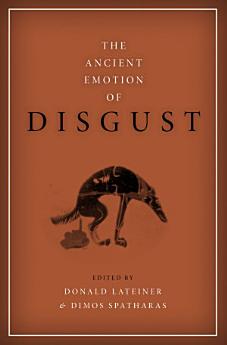The Ancient Emotion of Disgust
Donald Lateiner · Dimos Spatharas
2016年10月 · Oxford University Press
電子書
336
頁數
family_home
符合資格
info
report評分和評論未經驗證 瞭解詳情
關於這本電子書
The study of emotions and emotional displays has achieved a deserved prominence in recent classical scholarship. The emotions of the classical world can be plumbed to provide a valuable heuristic tool. Emotions can help us understand key issues of ancient ethics, ideological assumptions, and normative behaviors, but, more frequently than not, classical scholars have turned their attention to "social emotions" requiring practical decisions and ethical judgments in public and private gatherings. The emotion of disgust has been unwarrantedly neglected, even though it figures saliently in many literary genres, such as iambic poetry and comedy, historiography, and even tragedy and philosophy. This collection of seventeen essays by fifteen authors features the emotion of disgust as one cutting edge of the study of Greek and Roman antiquity. Individual contributions explore a wide range of topics. These include the semantics of the emotion both in Greek and Latin literature, its social uses as a means of marginalizing individuals or groups of individuals, such as politicians judged deviant or witches, its role in determining aesthetic judgments, and its potentialities as an elicitor of aesthetic pleasure. The papers also discuss the vocabulary and uses of disgust in life (Galli, actors, witches, homosexuals) and in many literary genres: ancient theater, oratory, satire, poetry, medicine, historiography, Hellenistic didactic and fable, and the Roman novel. The Introduction addresses key methodological issues concerning the nature of the emotion, its cognitive structure, and modern approaches to it. It also outlines the differences between ancient and modern disgust and emphasizes the appropriateness of "projective or second-level disgust" (vilification) as a means of marginalizing unwanted types of behavior and stigmatizing morally condemnable categories of individuals. The volume is addressed first to scholars who work in the field of classics, but, since texts involving disgust also exhibit significant cultural variation, the essays will attract the attention of scholars who work in a wide spectrum of disciplines, including history, social psychology, philosophy, anthropology, comparative literature, and cross-cultural studies.
關於作者
Donald Lateiner is an author, editor, and the Professor of Humanities in Classics, Emeritus at Ohio Wesleyan University. He has published numerous works on Classical antiquity. Dimos Spatharas is Assistant Professor in Ancient Greek Literature at the University of Crete. He has an extensive background in study and translation of Ancient Greek history and culture.
為這本電子書評分
請分享你的寶貴意見。
閱讀資訊
智能手機和平板電腦
手提電腦和電腦
你可以使用電腦的網絡瀏覽器聆聽在 Google Play 上購買的有聲書。
電子書閱讀器及其他裝置
如要在 Kobo 等電子墨水裝置上閱覽書籍,你需要下載檔案並傳輸到你的裝置。請按照說明中心的詳細指示,將檔案傳輸到支援的電子書閱讀器。








